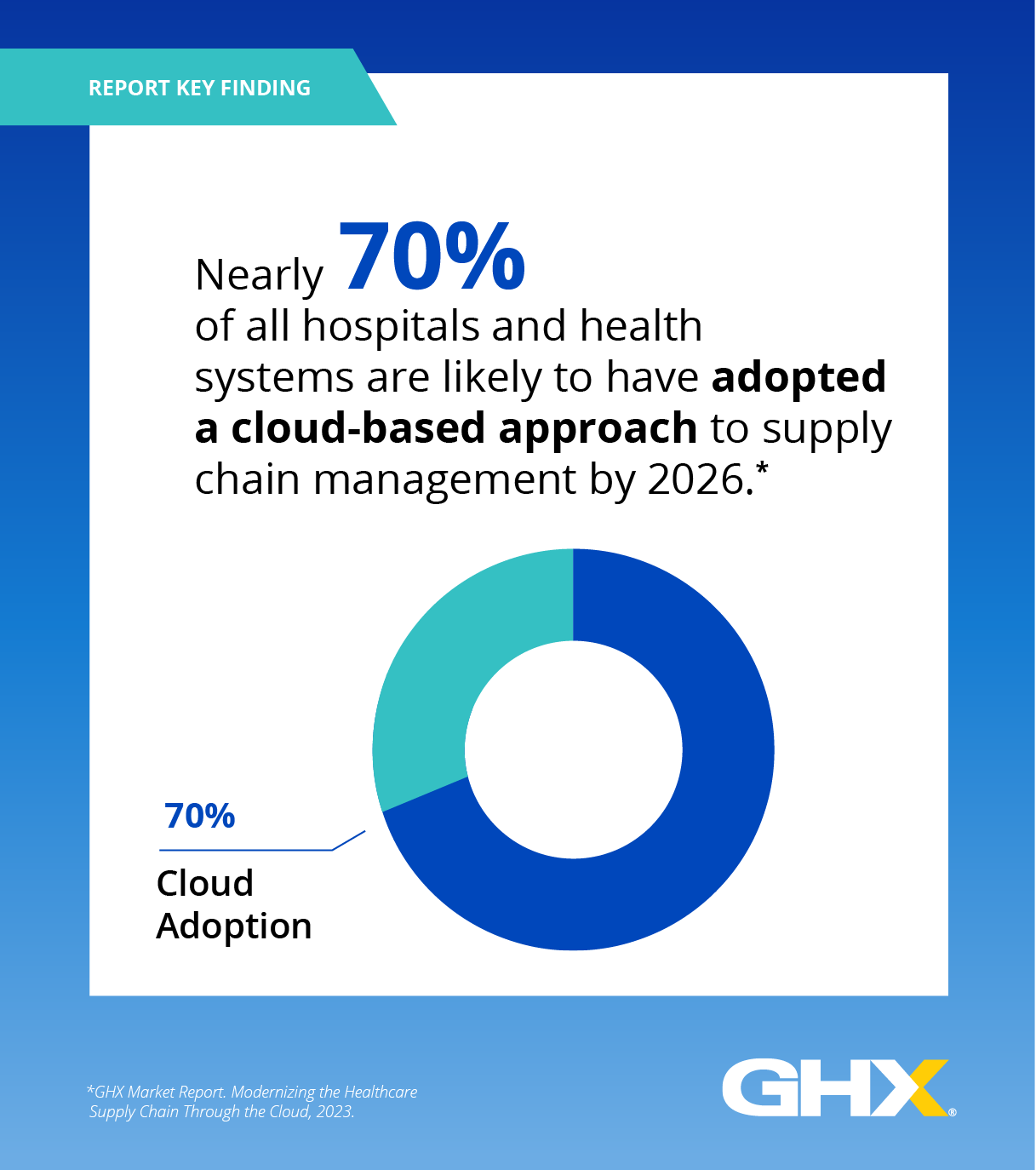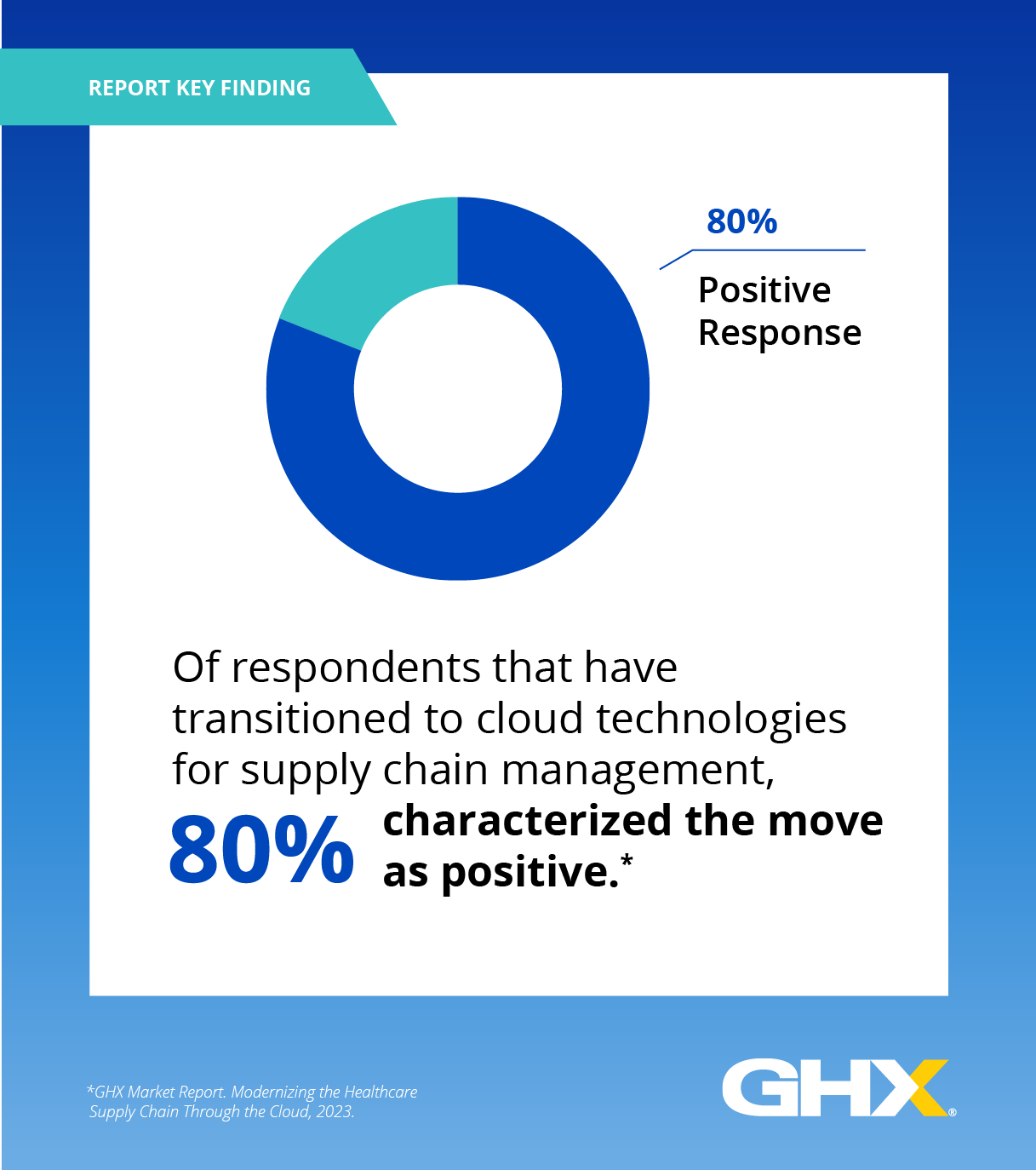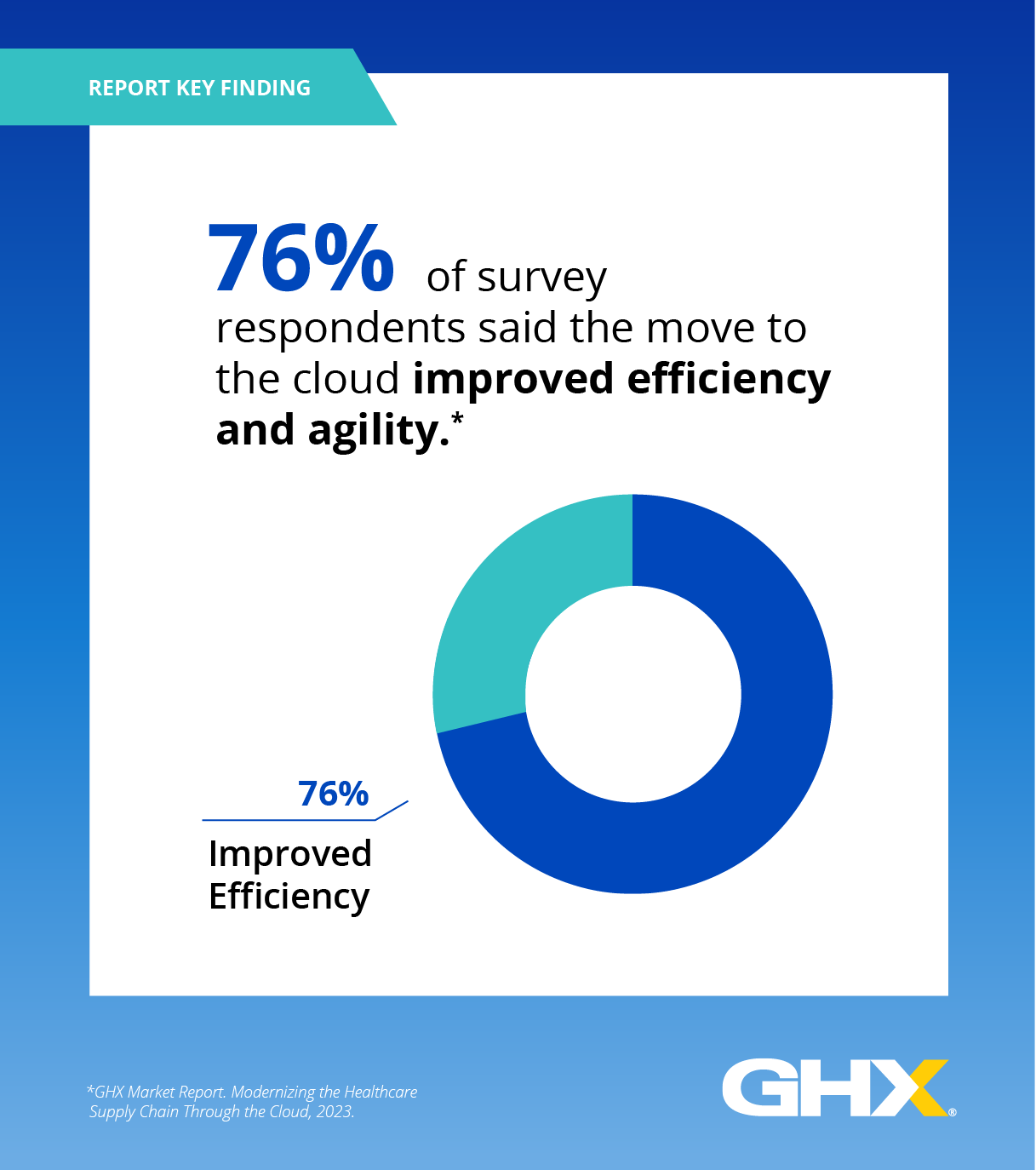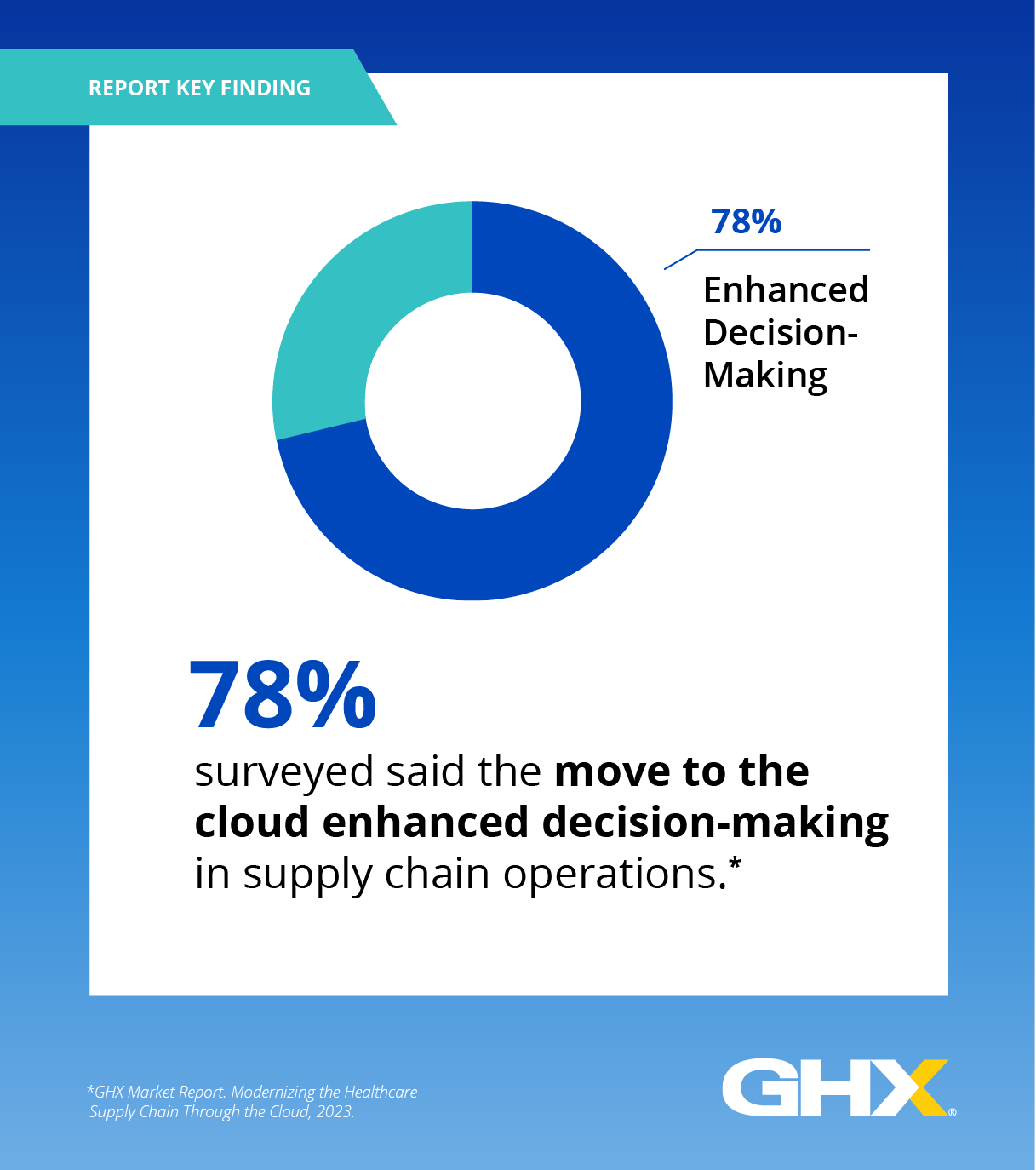Nearly 70% of U.S. Hospitals and Health Systems to Adopt Cloud-Based Approach to Supply Chain Management by 2026
A recent survey conducted by Global Healthcare Exchange (GHX) sheds light on why more hospitals and health systems are transitioning to cloud-based technology for supply chain management. These findings show the top three drivers of the shift to the cloud are improving efficiency, reducing costs and enhancing operational resilience.
The survey of more than 100 hospital and health system leaders found that cloud-based solutions are quickly becoming a new standard within hospitals and health systems and impact nearly every domain, including supply chain, clinical, finance and HR teams. According to the data, nearly 70% of all hospitals and health systems are likely to have adopted a cloud-based approach to supply chain management by 2026, helping them to enhance decision-making, improve efficiency and agility, reduce costs, improve data security and privacy and streamline processes.
"One of the largest opportunities in healthcare is empowering providers to better control surging costs while ensuring patients receive the best possible care. Data show the cloud plays a vital role in making that a reality," said Archie Mayani, chief product officer, GHX. "By migrating data to the cloud, hospitals and health systems can make more trusted, accurate decisions, helping to lead to a safer and more efficient approach to supply chain management and, ultimately, higher-quality and more personalized care."
Key Survey Findings:
Positive Momentum and Sentiment
Leaders from healthcare organizations that have implemented cloud technologies for supply chain management cited several additional positive benefits, including improved scalability and better analytics and reporting.
-
- Almost 80% of healthcare leaders that have embraced cloud technologies for supply chain management describe the transition as a positive change.
- Nearly half (45%) of hospitals and health systems have already transitioned to cloud technologies for supply chain management, and many more will do so over the next 24 months.
Data Security and Privacy Gains
Cloud technology can offer advanced cybersecurity measures, a crucial factor given the escalating frequency of cybersecurity threats and their substantial associated costs within healthcare.
-
- Nearly three quarters (73%) of survey respondents said the move has improved data security and privacy.
Cloud Adoption Drivers
Cloud technology offers significant benefits for supply chain management amid ongoing financial challenges and healthcare industry consolidation.
-
- M&A Activity: Approximately three-quarters (74%) of survey respondents noted that their organization's expansion (through acquisition or other means) influenced the decision to incorporate cloud technologies.
- Financial Pressures: 71% of survey respondents cited financial pressures to reduce waste and costs, regardless of whether or not they have implemented cloud technologies.
"Once organizations have successfully migrated to the cloud, many quickly shift their attention to optimizing their investment and consider more advanced technology such as artificial intelligence and machine learning, as well as demand forecasting to amplify the benefits of the cloud," continued Mayani.
To download the full survey report, including best practice cloud migration recommendations, visit https://www.ghx.com/resources/educational-brochures/modernizing-healthcare-supply-chain-through-cloud-report/.




Methodology
Global Healthcare Exchange (GHX) commissioned independent healthcare consultancy Sage Growth Partners to conduct this survey of U.S. hospital and health system leaders in July 2023. The survey yielded 103 responses from a variety of roles within the C-suite, representing a broad range of organization sizes and entity types.
About GHX
Building on decades of collaboration among providers, manufacturers, distributors and other industry stakeholders, Global Healthcare Exchange, LLC (GHX) is leading the charge in helping organizations run the new business of healthcare. By automating key business processes and translating evidence-based analytics and data into meaningful action, GHX is helping the healthcare ecosystem to move faster, operate more intelligently and achieve greater outcomes. With the support of GHX, healthcare organizations have removed billions of dollars of wasteful healthcare spend. For more information on GHX’s suite of cloud-based supply chain solutions, visit www.ghx.com and The Healthcare Hub.